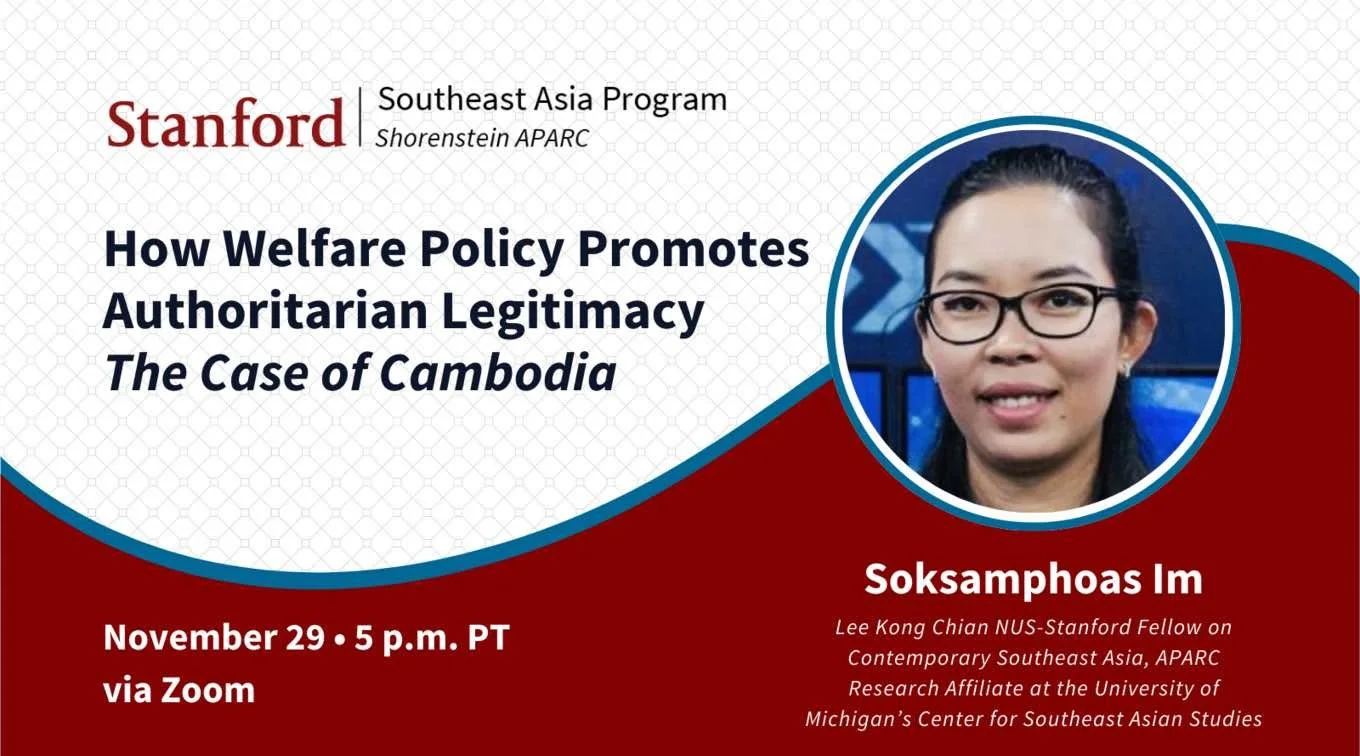Organizer: Southeast Asia Program, Stanford University
Type/Location: Virtual
Description:
In the course of his reign as Cambodia’s prime minister from 1985 to 2023, Hun Sen forcibly dissolved the opposition Cambodian National Rescue Party (CNRP) and turned his country into a one-party state under his Cambodian People’s Party (CPP). After summarizing that history, Dr. Soksamphoas Im will show how Hun Sen copied and expanded the CNRP’s commitment to social welfare, including cash transfers to Cambodia’s poorest and most vulnerable households. The 2013 election could have led to Hun Sen’s downfall. Instead, by combining coercive capacity with policy reform, he managed to legitimize his regime. Dr. Im will portray Hun Sen’s rule as a unique case study in authoritarian legitimation that stands in contrast to the survival strategies of other autocratic states such as China.
Speaker:
Soksamphoas Im is a Research Affiliate at the University of Michigan’s Center for Southeast Asian Studies. At Stanford, she is working on a book manuscript provisionally entitled Authoritarian Resiliency: The Politics of Social Protection Policy in Cambodia. Her latest writings on Cambodia (2023) have appeared in the Journal of Industrial Relations, Research on Ageing and Social Policy, Asian Politics & Policy, and forthcoming in Asian Studies Review, Routledge Handbook of Autocratization in Southeast Asia, and Annals of Tourism Research Empirical Insights. She holds an MA and a PhD in Political Science from the University of Hawai’i at Mānoa and an MSc in Defense, Development, and Diplomacy from Durham University in the UK.
Registration:
To register, click here.

